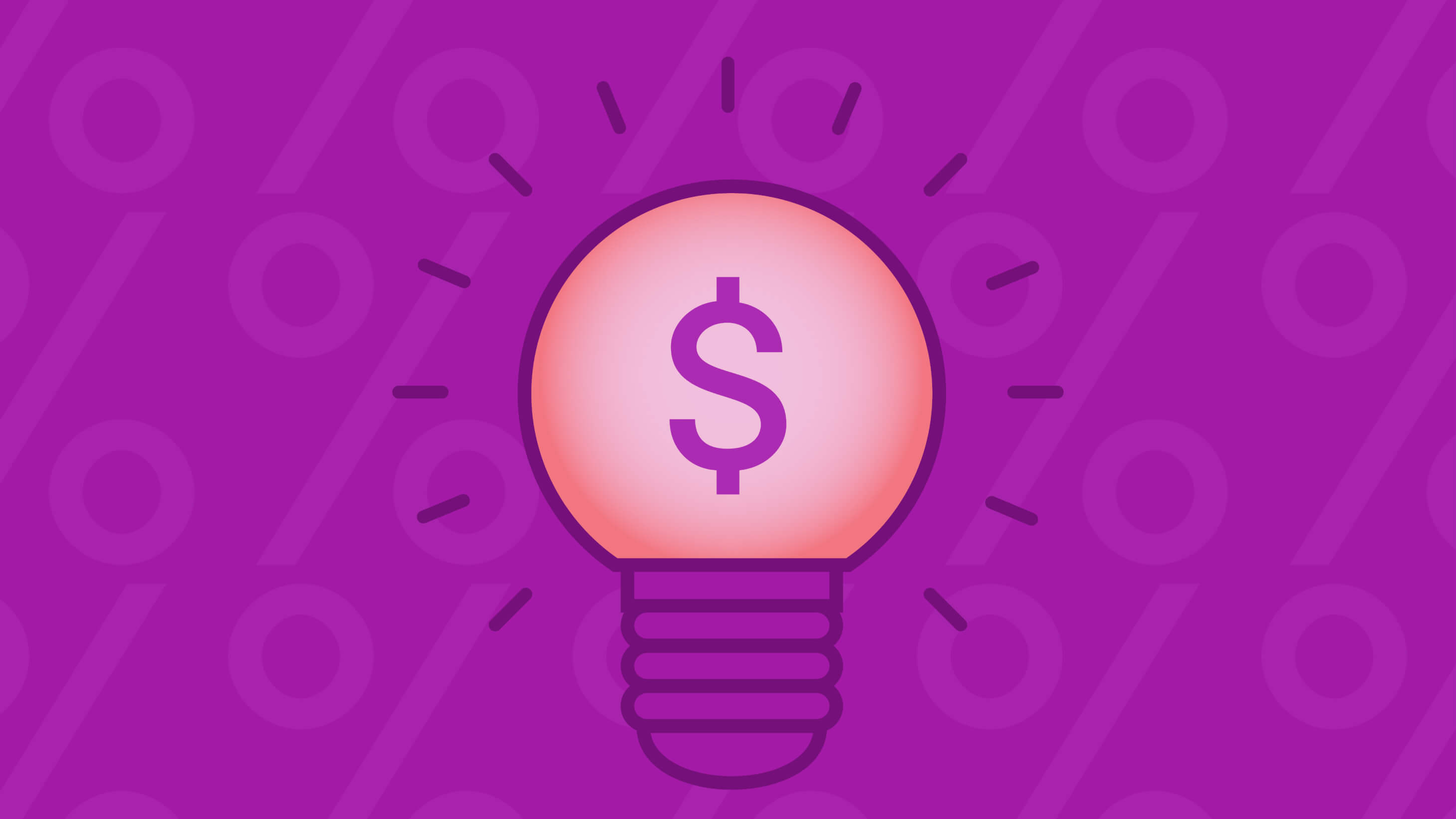Understanding interest: How does it work in your savings account?
Ever heard of the saying “Make your money work for you”?
There’s no better feeling than knowing your hard-earned money is hard at work earning money as well. When you put money into a savings account, you earn interest on your deposits. It’s a way to grow your money steadily.
Your savings are an important part of your financial stability, and they can keep you afloat in many unexpected situations. Any help you can get to earn a few extra dollars can add up over time.
Need money for a dream vacation next year? Set aside money each month into your savings account. Trying to pay off your student loans? Open a high interest savings account.
When planned correctly, your savings can help achieve your short-, medium-, and long-term financial goals.
Feeling unsure about savings accounts and interest? This guide breaks down everything you need to know about how interest works in a savings account.
Interest 101: What it is and how it works
Interest on a savings account is the money an institution pays you for holding money in an account with them. You earn interest based on the amount of money in your account, the interest rate, and how long the money sits in your savings accounts.
There are two types of interest–simple and compound. Simple interest only considers the principal or original amount of a loan or investment. Compound interest is calculated on the principal amount and the accumulated interest from previous periods. You earn compound interest in a high-interest savings account. The financial provider pays interest into your account based on the compounding frequency.
You can estimate the total compound interest by using a basic formula that uses the principal amount, the annual interest rate, and the compounding periods. If math wasn’t your favourite subject in school (and we don’t blame you if it wasn’t) then there are many online calculators online to help. If you have $5,000 in a high-interest savings account with 1% interest compounded daily, you earn $5,256.35 at the end of five years. The future value of your account is higher when the compounding period is more frequent.
Compound interest grows your money faster than simple interest and is a powerful tool for your long-term savings. As you reinvest the interest earned into your account, your funds increase at an ever-accelerating rate as the accumulated interest from previous periods increases.
Understanding how interest accumulates in a savings account
Institutions set savings account interest rates based on the financial markets and competitors. If they want customers to deposit money, the institutions may offer higher interest rates to attract new customers and existing account holders. Many financial providers offer high-interest savings accounts and promotional rates on standard savings accounts as well to attract customers.
What are APR and APY?
When looking at various financial products, you’ll often see terms like APR and APY. These are important terms that tell you how much you pay on a loan or earn in a savings account. APR stands for annual percentage rate. APR represents what you pay over a year for borrowing money, such as a credit card or car loan.
APY stands for annual percentage yield and is the real rate of return earned on an investment, such as in a savings account. APY can also be called the annual equivalent rate (AER). It’s the interest rate for a savings account or investment product with more than one compounding period. AER assumes any interest you receive is added to the principal amount and each interest payment is based on a slightly higher account balance.
Capitalizing on compounding interest rates
Compound Interest is accrued daily and paid into your account based on the compounding frequency. It’s considered “interest on interest” because compound interest is calculated based on your initial deposit and accumulated interest. If you’re saving for certain goals and want to accelerate your timeline, capitalizing on compounding interest rates can help.
You typically find compound interest in a high-interest savings account, which helps you earn interest faster than a traditional savings account. Compound interest has a snowball effect. The longer you leave money in your high-interest savings account, the amount of interest you earn after each compounding period accelerates. You can further capitalize on compounding interest rates by making frequent contributions to your account.
Let’s say you have $5,000 in a high-interest savings account earning 1% interest compounded monthly. You have $5,256.25 in your account at the end of five years. If you regularly deposit $100 into your account each month, you’ll have $11,406.15.
The Neo High-Interest Savings account offers one of the highest interest rates in Canada1, at 4.00%². Whether you have an emergency fund or need to make purchases in the short term, capitalizing on the compounding interest rate in a Neo HISA is one of the easiest ways to grow your funds.
Tax implications on your high-interest savings account
You may wonder whether interest earned in a high-interest savings account has the same tax implications as other forms of income. Many people use HISAs as an investment product in addition to a savings tool because of the compounding interest. Certain accounts grow your funds tax-free, such as a tax-free savings account (TFSA). Unfortunately, that is not the case for HISAs.
Any profit generated from the compounding interest of your HISA gets treated as taxable income when you file taxes. The amount of tax you pay depends on which tax bracket you fall under.
Your financial provider will provide a form (called a T5) that indicates how much investment income you earned during the year, including compound interest earned in your high-interest savings account. You must submit the amount on your T5 with your tax return each year.
Gain control of your finances today with a Neo High-Interest Savings account
Opening a high-interest savings account is a good choice for many people. It provides steady, accelerated growth over time without the risk of investing in the stock market or the contribution limits of a TFSA.
The Neo High-Interest Savings account offers one of the highest interest rates in Canada1. You earn 4.00% interest² on every dollar in your account with no monthly fees or minimum balance requirements. You can use the Neo app to track your savings progress and see how much interest you earn each month.
Most people have multiple savings goals. We make your savings journey easy by allowing you to create multiple HISAs. You can dedicate an account to the all-inclusive vacation you’ve been eyeing, and another account for the new car you need. Whatever you’re trying to save for, a high-interest savings account can support your financial goals.
Want your child to start learning the importance of saving and financial planning? We offer a high-interest savings account with features designed for youth aged 13 and up³. They get built-in financial tools to personalize financial goals, track spending habits, and build a healthy budget for what they want to buy.
Make unlimited transfers between your Neo High-Interest Savings account and other Neo accounts4 to set them up in a way that works best for you.
Are you ready to gain control of your finances? It only takes a few minutes to get started on your savings journey. Learn more about the Neo High-Interest Savings account and open yours today.



